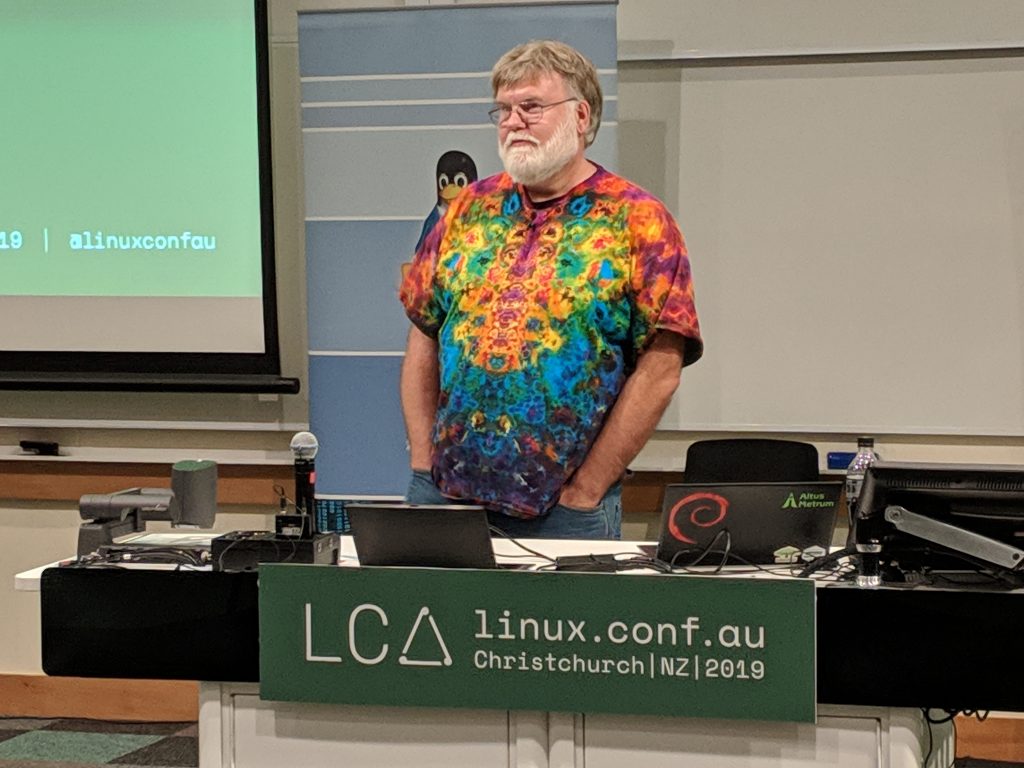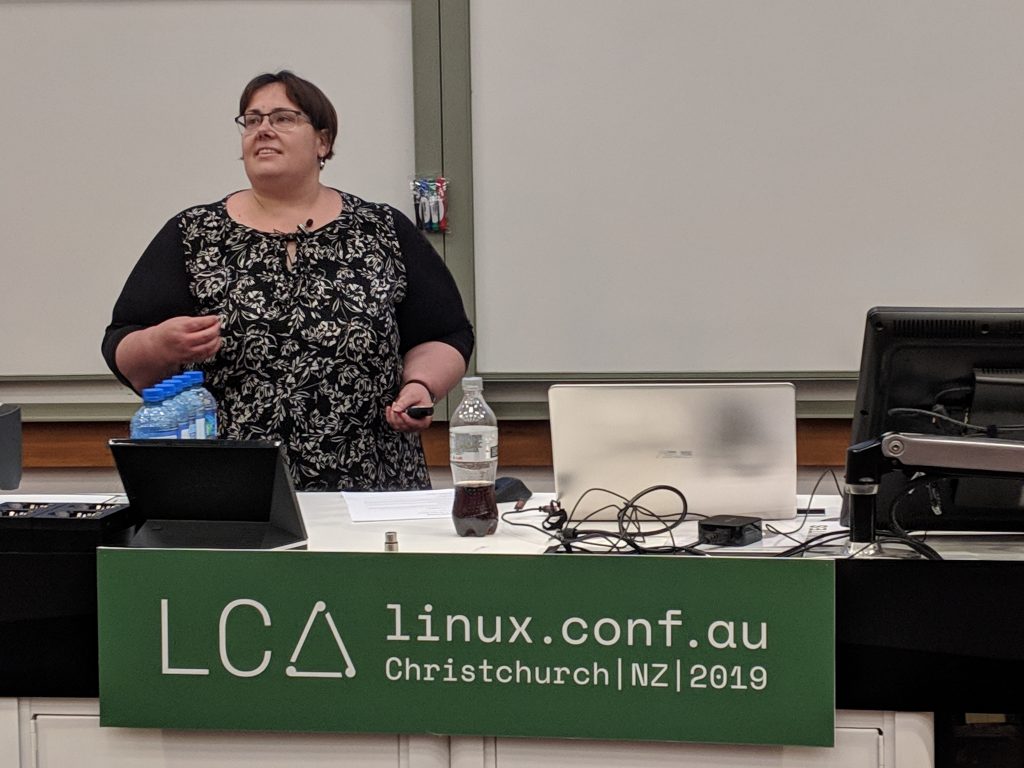Go All-In! – Bdale Garbee

- How to get companies involved in FOSS
- First contribution of source code was almost 40 years ago
- Used Vax BSD at CMU – HAd the deal with an obscure priesthood
- KA9Q TCP/IP stack for amateur radio in the 80s
- Appearance of RMS in my world
- GNU Manifesto
- 4 Freedoms
- GPL
- Debian
- Worked as LInux CTO from one of the largest IT companies in the world
- Collaborative Development Model
- Spread out besides just making FOSS
- No one company in charge
- Diverse range of contributors, massively different motivations
- We get a software commons we all get to benifit from
- Free Software means Freedom of Choice
- Reduced barriers between users and producers of software
- Any user can be a dev, or pay someone to dev
- If upsteams goes bad, things can be forked
- What it means to be successful when you are operating in an open and collaborative model?
- The goal of a trad company is for investment to yeld technological control points
- First mover advantage
- Differentiated features, preferably patentable
- Collaborative dev model allows us to recognise the benifit of collaroation on all the non-differentialting elements. Leavign more value to the users / customers
- Thinks less about control points, more about points of affinity. What is it that would make a customer want to user you products or services?
- Innovation these days largely takes place in the open space
- Wrights/Goddard – They didn’t get told to to the next new thing, they just started it as a hobby
- Free Software enables people who we don’t know exist to create innovation and invent things we can’t imagine
- Long Tail of Contribution
- Example: People who did one Linux Kernel contribution, often to fix on specific thing that was causing them problems.
- No company on earth that can hire that resource
- Needs to be easy for people to access the code and make contributions
- Attributed of Successful Communities
- Active contribution and collaboration
- Diverse participation
- Solid core of code
- Recognizable mainline trunk
- Unified, cohesive structure
- Low barriers to entry
- Choosing the right license
- Businesses can only be successful with permissive licenses
- The most successful projects seems to be communities built around open contribution
- Share-alike licenses stop possible problem of Closed Corporate fork while the original project withers
Beach Wreck Ignition: Challenges in open source voice –
Kathy Reid

- MycroftAI – One of the few open source voice stacks
- Introduction to a Voice Stack
- Wake Word – eg “Hey Alexie”
- Utterance – Phrase of command
- Speech2text processor
- Looks for keywords etc
- Runs a command
- Dialog – acknowledger + response
- Wake Word
- PocketPhinx, Snowbox, Mycroft Ai Precise
- Some use Phonemes (smallest units of sounce in a language)
- Hard to tell differences between all words
- Always listening, connected to internet
- Some use Use Neural networks
- Low accuracy can cause frustration
- Bias towards male speaker (10:1 male:female in dataset). Also more with American than other accents
- To unbias the sample had to tag the samples with ethnicity, gender etc. Which was a problem with ethics of taggign samples/speakers
- Speech to Test
- Kaldi – no network needed, compute heavy
- Deep Speech – From mozilla
- Challenges
- Lots of accents out there. Hard
- Only trained for most common accents
- Also problem with regional slang
- Need to train on individual speaker
- But need lots of data to understand a speaker
- Endangered Languages
- No commercial imperative to cover them
- Mycroft Translate using Pootle to translate command words to 40 languages
- Issues for gendered languages, formality
- Intent Parsers
- Rasa, Mycroft Adapt, Mycroft Padatious
- Intent Collisions – Use confidence scoring depending on how explicit the request is.
- Text to Speech
- Mary TTS, Espeak, Mycroft Mimic, Mycroft Mimic 2
- Mimic recording studio, Need 40-60 hours audio
- Challenges
- Natural sounding voice – making the voice sounds not robotics
- Pronunciation – often requires after creation